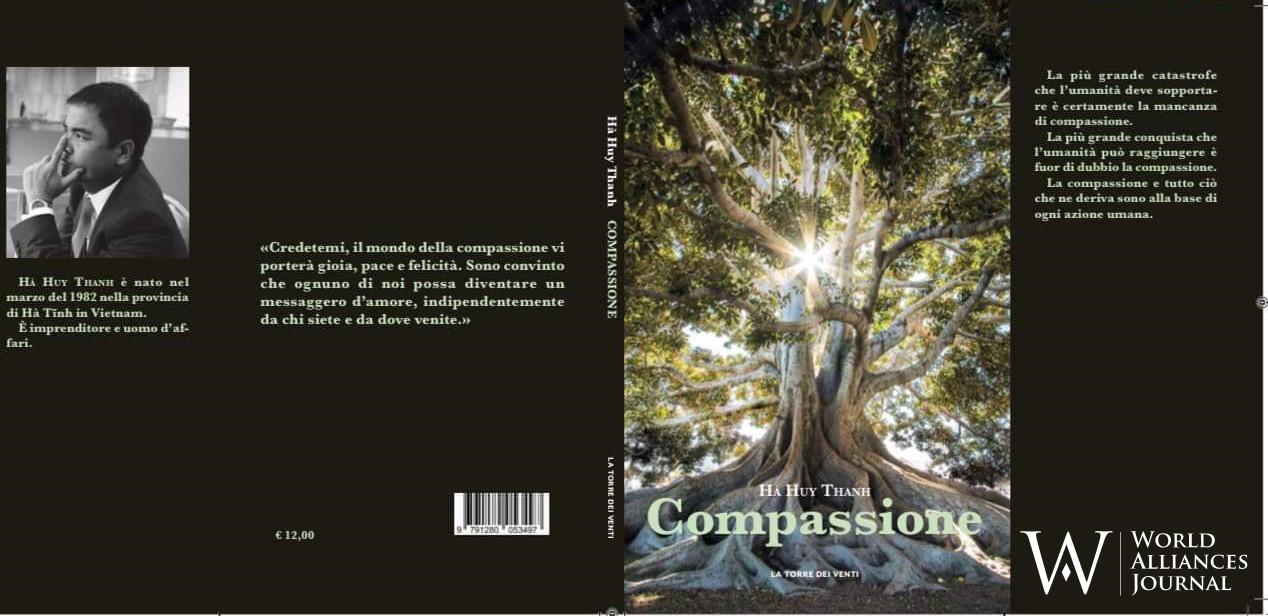
I have traversed my career, perhaps taking a thousand flights, crossing lands to discover new worlds, distant continents, and new ways of thinking; theories, customs, ways of living, distant customs. But slowly, with this life of a traveler, I have gained new awareness, new reflections, and new inclinations towards existence. Gradually, my convictions have been infused with new experiences, new puzzles, but also with new visions: thus, all that heritage of provincialism and conventions rooted in my personal education has dissolved and opened up to the sea of others. This is what I was thinking when I was offered this book; when I met Thanh, during my last trip to Vietnam.
I had already been struck by Vietnam, Thanh, during my stay in Ho Chi Minh City; I immediately felt Vietnam as an extraordinary nation, an exceptional people, incredibly rich in smiles and wisdom, understanding, and kindness. A people who seemed to infect you just by walking the streets, with a new special tangible energy: I listened to this positive energy but I didn't know what it was, where it came from. I had long taken the habit of freeing myself from commonplaces; trying not to consider the limits of a country, or even the customs of a people, but rather trying to consider instead the emotion of the spirit; especially when looking into the eyes of another unknown individual, seeing him as a brother in the innermost, with the same hopes and dreams, even without a notion of language or culture. Then one frees oneself from every prejudice, and becomes only friendly individuals, and citizens of the world seeking a symbiosis of the deep, through an existential experience. In other words: I had learned to open my heart to the world, entering the universe of “Compassion”.
Consequently, after reading this book by Thanh, I had the written confirmation of a thought that I could only intuit, suspect, or yearn for. I entered this book and was infected by every word, which melted in my mouth with its universal language, and almost in the premonition of being spoken or written; and almost as if I were myself thinking and uttering it an instant before it was written. I was infected by every concept, which fused within me. I was gently struck by every sentence or quotation, which arrived as sudden gifts of the spirit on the page, but above all entered into the depths, into the heart of my personal moral experience. I had truly
been infected by the statuesque image of the word "Compassion." I had discovered the deepest and most empathetic authentic meaning of the word compassion, which contained in its kind of meaning, perhaps still unknown to the Italian reader, far too infected, and perhaps worn out, by the classic European concept of the word "Compassion."
Just as Thanh writes: "It's better not to look for its meaning on Google or Wikipedia, it hasn't been concretely interpreted yet." And it's true: compassion for us Italians is not disconnected from a certain Christian or philosophical piety, but for Thanh, it is a more universal discipline that does not want to be confused only with pity. Rather, it is about the practice of a concrete discipline, to be performed every day of life; to dedicate oneself to others with the natural concreteness of Eastern discipline, and with the wisdom gained from reality itself. The compassion narrated by Thanh, with his charismatic, simple, and universal language at the same time, seems to give us, right from the start, the recipe for global happiness. And I am pleased that it was not a philosopher who wrote this: but rather a successful entrepreneur, a noble-minded, practical, and visionary man; a man who desires the greatness of his country and his life, his friends, and his family. Because as the Greeks say: poetry is action. Thanh, with this book, has uncovered a dramatic and general problem that concerns us all closely: where does profit begin, the sense of life is forgotten? Where does love begin, if it is disconnected from the transcendent power of the spirit? Where do Nations begin, without the deepest and fraternal sense of communion and universal brotherhood among peoples? And where does brotherhood begin, without that sense of mutual, existential understanding? Without that feeling of mutual and absolute "compassion," a feeling that belongs to the entirety of every individual? Traveling has educated me to pay attention to others: and without compassion, there can be no future or understanding for any individual. As Thanh expresses in the beautiful fifth chapter dedicated to sharing: "The true superpower is empathy, the source of air for the sky of compassion." Compassion is therefore the intense volitional force of thought: in "compassion," or suffering together, lies the recipe for every individual and collective vitality. But simply, "com-passion," means discovering the most source of every figurative formation of thought, to arrive at the awareness of mutual understanding. Because compassion is understanding.
We present this book to Italy, new and unknown from the Italian reader's point of view, which I live as a gift. We wish everyone to be infected by the deepest and most universal meaning of the word compassion; indeed, to become exegetes, coaches, advocates of every form of universal and mutual compassion! May everyone feel passion for compassion! Cheer everyone with empathy, for compassion in every form! Just as Thanh observes: "Because sharing is an active value, because only by sharing can we realize our potential, know our strengths and weaknesses." Many ancient and modern Italian authors would have greeted this book as a blessing. One for all, Silvio Pellico, who in his masterpiece of 1832, "Le mie prigioni" (My Prisons), effectively expresses this feeling of sweetness but above all of authentic, true compassion. A strong compassion even for his jailers and cellmates, a robust compassion even for the adverse times of his life. Silvio even thanks the enemy; he was held prisoner in Spielberg prison for ten years, but always seeking the deepest compassion in every action, even in extreme conditions. "Le mie prigioni" was judged by Minister Metternich who said to the Emperor the following sentence: "Majesty, this book is the greatest battle we have lost," because all Austrians saw, in the absence of any hatred towards the enemy, the deepest sign of compassion. I wish Thanh this happy fate: that this book be the battleship of compassion that will change the face of every reader!
PROMOTED

The International Forum for International Building and Construction Companies, “Bao Congress,” began today in the Austrian capital, Vienna. Its activities will continue for two days, in the presence of two thousand participants and one hundred exhibitors from various giant construction companies.
- Moldova deploys its first satellite from the International Space Station through the KiboCUBE programme
- Mr. Truong Ngoc De has been elected Chairman of the Vietnam Taekwondo Federation for the third time in a row
- President Nguyen Minh Triet: culture is the key of every problem
- Minister Luong Tam Quang: Solidarity - Nobility - Humanity - Together to protect a peaceful life, for peace for all mankind
- Chairman Ho Huy interview: "green is the color of life"
- Chairman Kwon Sung Taek: When Art and Memory Shape Vietnam–Korea Diplomacy
- Saudi Energy Minister: We are working as mature central banks for oil... Supporting market stability and preventing sharp fluctuations
- ODIHR opens election observation mission in Bosnia and Herzegovina
- Young translator conquers the ancient Greek classic Anabasis – Memoir of the Persian Expedition
- Austria news - Usama Nosshy channel covers Asean's 55th anniversary celebrations at the United Nations in Vienna
- VietnamPlus Newspaper reported about ASEAN's 55th anniversary at the United Nations in Vienna
MOST VIEWED
-
1
TALKSHOW HUNG KING’S 67: THE MOSAICS OF THE KING XVIII

-
2
Global integration brand - global summit: mosaics of the king 2022

-
3
THE UTILIZATION OF TECHNOLOGY TO INTRODUCE GREEN HYDROGEN GAS INTO INTERNAL COMBUSTION ENGINES

-
4
Secretary-General António Guterres: This senseless war must stop !

-
5
VietnamPlus Newspaper reported about ASEAN's 55th anniversary at the United Nations in Vienna

The two Kings Philippe and Van der Bellen havedifferent backgrounds, one is of royal origin, and the other is a child of a refugee family (once of noble origin) but now, in the eyes of the European public, both of them are giving off a sense of courtesy, virtue and erudition.
WAJWith the attendance of many international figures, the 80th anniversary of the end of World War II was celebrated at the United Nations headquarters.
Journalist Usama Soliman

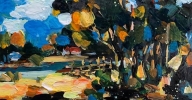
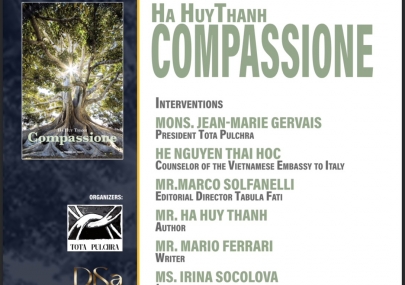
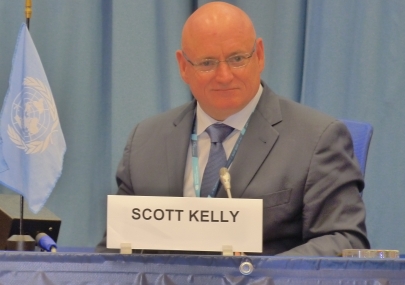
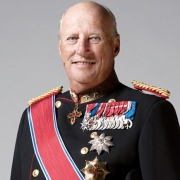
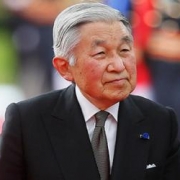

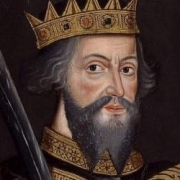


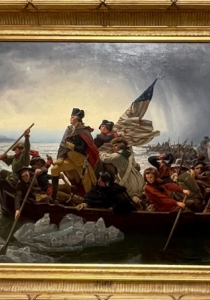
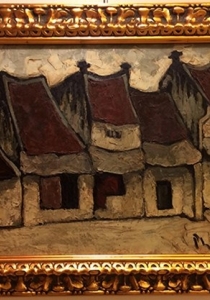

Comment